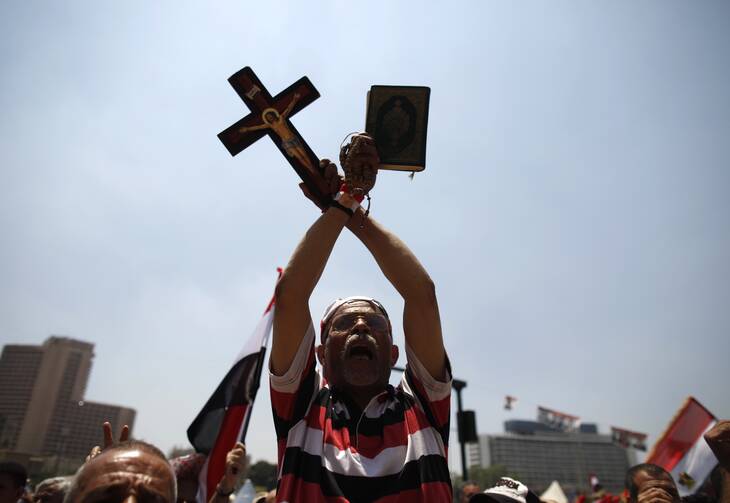Every Monday I enjoy a picnic along the banks of the Nile in a secluded spot that I found away from the bustle of the city. Cairo is not an easy place to find such a place, so I’m rather pleased with myself. I sit on an old wall and look at the cattails and bulrushes, and imagine where the basket of Baby Moses once nestled. As you can probably see, I’m not a Biblical scholar! Rather, I study Arabic and the Quran. These Monday picnics are my break between the challenges of a morning of Quranic grammar and an afternoon of Islamic theology.
I’m a Jesuit deacon preparing for ordination to the priesthood in six months and I am privileged to spend this year in Cairo as a student of the Quran and its language. I study alongside religious and diocesans from different countries, and together we try to answer the call of Jesus to be friends with Muslims.
Cairo is a fascinating place and this is an especially fascinating time to be in Cairo. The city was founded in 969 A.D. as an administrative capital for the Muslim migrants to this otherwise already ancient and Christian country. This City of a Thousand Minarets really is a marvel, with a pulse that never stops beating. When considering the problems the country now faces, this constant pulse must be remembered. Cairo seems able to absorb any situation, and, like our own church, seems to take the long view. I like to remember the escapades of King Louis and of Napoleon. She waited them out, and they never vanquished this city or her spirit. There is a reason this city is called the Vanquisher.
Islam permeates this land; it runs in the blood of Cairo. When I first arrived—and had some time away from studies—I would help with the quotidian shopping of my community. My favorite place to visit was the vegetable stall of “Uncle Seyyed.” He sells fresh smelling basil and plump tomatoes. When I asked the Syrian Jesuit novice accompanying me whether we could trust him for the prices, the novice responded, “of course, he’s a Muslim!” (The same rule does not apply, however, when trying to hail a taxi.)
An oasis of quiet in this city—though much more public than my hideaway along the banks of the Nile—is the Mosque of Sedeyyna Zeinab. This shrine to the granddaughter of the Prophet is full of people seeking her intercession and has the fragrance of holiness. Muslims come here and take oaths for their families and seek solace for their troubles under Zeinab’s patronage. It really is a beautiful place. A Christian would easily recognize the spirit of holy places here.
In September, my community joined the world in responding to Pope Francis’ call to pray for peace in Syria. We feel very close to Syria, and indeed it is part of the Jesuit Province of the Near East. We held an outdoor vigil in front of our local Marian grotto. As the Blessed Sacrament was exposed and I gave the benediction, the evening call to prayer began from the multitude of minarets above us. I had a sense of how we are all united in our common hopes and fears, and that the life of the Arab world rests in the mercy of the One God.
Matthew Livingstone, S.J., is a Jesuit deacon studying in Cairo.








